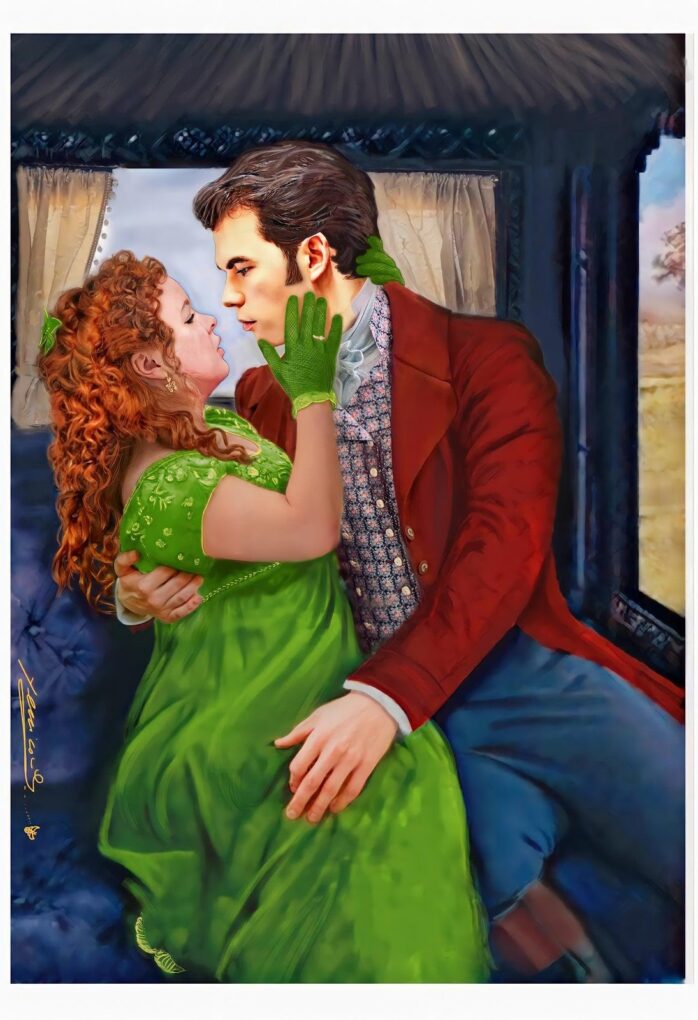
The Carriage Scene in Bridgerton: A Review
Excitement is in the air, with fans on the edge of their seats, looking forward to a particularly intimate scene from Julia Quinn’s “Bridgerton” novels being brought to life in the third installment of the acclaimed Netflix series.
A sneak peek, marking the kickoff of production, has heightened the audience’s eagerness, providing a glimpse into this pivotal scene. It’s inspired by Quinn’s “Romancing Mister Bridgerton,” renowned for its deep emotional resonance and passionate undertones:
- The story unfolds with Colin Bridgerton left fascinated in the wake of his first kiss with Penelope Featherington. His keen interest unveils a shocking truth – Penelope is none other than the mysterious author Lady Whistledown, who spins the town’s juiciest gossip. A heated exchange inside the carriage spirals into a series of impassioned embraces and affectionate murmurs, only to be interrupted upon their arrival at the Featherington estate;
- A comedic twist accentuates the storyline when the duo, caught in the aftermath of their impassioned interaction, hastens to regain composure. A seemingly innocuous question from Colin sends Penelope sprawling, an event precipitating her assent to his proposal, propelling their romantic narrative forward. However, speculation abounds on the adaptation of this memorable scene in the televised version of “Bridgerton,” especially considering the complex portrayal of Penelope.
In Quinn’s creations, Lady Whistledown’s tales are characterized by a lighthearted tone, untouched by the dramatic occurrences seen in the Marina and Eloise narrative arcs. Thus, in the books, Colin’s acceptance of Penelope’s secret identity unfolds seamlessly. However, the televised adaptation presents Penelope’s writings as sources of anguish for Colin and those he holds dear, suggesting a complex transition from revelation to romantic entanglement.

In Conclusion
Penelope’s meaningful discourse with Marina has engendered an acute awareness of the ethical implications tied to trapping someone in an affection-devoid matrimonial bond. As such, Penelope’s acquiescence to Colin’s matrimonial overture isn’t anticipated to be straightforward, absent a mutual declaration of affection.
The eager anticipation of “Bridgerton” aficionados is almost tangible, as they countdown to the release of the third chapter. Queries surrounding the on-screen depiction of the famed carriage scene are rife. Despite uncertainties, anticipation surges, with fans optimistic that the adaptation will encapsulate the fervent passion characteristic of the original text.The forthcoming season is foreseen to be a mesmerizing amalgamation of ardor, mystery, and metamorphosis, echoing yet diversifying from its novel-based origin. The unfolding love narrative of Penelope and Colin is slated to magnetize viewers, unveiling a rejuvenated and invigorating rendition of this emblematic juncture in the Bridgerton anthology.






